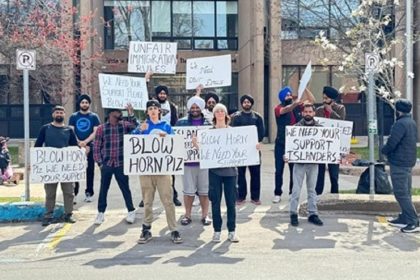
This week, tens of thousands of international students flocked to the streets throughout Canada to protest the federal government’s new immigration rules.
According to a City News Toronto article on Monday, the rallies, which drew around 70,000 students, took place in key provinces such as Prince Edward Island, Ontario, Manitoba, and British Columbia.
The protests erupted in reaction to a slew of immigration regulations that have left many overseas students fearing deportation.
In 2021, Canada will end the Post-Graduation job Permit program, which historically permitted overseas students to get useful job experience in the country after finishing their studies.
To exacerbate the situation, the federal government imposed a two-year limit on overseas student visas last year.
As of 2023, international students accounted for 37% of study visa holders in Canada.
However, the recent cap on student visas is likely to lower the number of international students by 35%, a move that the government claims is required to relieve demands on housing, unemployment, and public services.
The Canadian government tightened requirements in June, saying that foreign nationals would no longer be able to apply for a PGWP at the border.
This decision has alarmed students who are anxious about their future in Canada.
Student advocacy groups, like the Naujawan Support Network, have warned that many overseas graduates may risk deportation when their work permits expire at the end of the year.
“I spent six years taking risks to get to Canada. Mehakdeep Singh, a former international student facing deportation, stated, “I studied, worked, paid taxes, and earned enough Comprehensive Ranking System points, but the government has taken advantage of us.”
The situation has also been exacerbated by new provincial rules, such as a 25% reduction in permanent residency nominations, which have further limited the options for international students to remain in Canada.
Similarly, immigrant workers have held rallies in areas such as Brampton to refute charges that they are contributing to local housing and employment difficulties.

